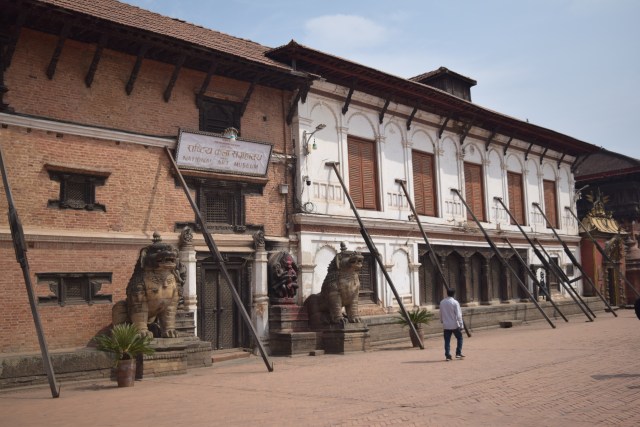During our first full day in Kathmandu, we took a tour just outside of the city to visit the temples of Bhaktapur. Like many of the locations that we visited throughout the Kathmandu Valley, there was evidence of the devastating earthquake of 2015. There has been a lot of work done to restore these UNESCO World Heritage Sites back to their original states. Bhaktapur is one of the three main cities of the Kathmandu Valley and is home to many of the Newar people, which is one of the oldest cultures in Nepal and also give the city its name as the city of the devotees.





There are three styles of temple roofs in Nepal and can be found in the Bhaktapur square, the pagoda style that can be found throughout Asia, the Shikhara style that resembles a mountain peak, and the Stupa style with its dome top. Neapal was made up of many different small kingdoms and each of these palaces had their own squares called a durbar where people gathered, worshipped, and most likely sold goods. The architecture of Bhaktapur is quite stunning, but the effects of the earthquake are quite visible as many of the buildings are being supported by posts to keep them from toppling over until they can be fully repaired.





Bhaktapur is also known for the clay pots and bricks that are produced in the region and as you drive towards Bhaktapur, you can see the chimneys of the brick factories with plumes of smoke rising towards the sky. In the square, you will find clay pots being painted by the local artisans and awaiting for their time in the kiln to be fired. We spent about two hours in Bhaktapur walking amongst the temples and enjoying the atmosphere. Visiting Bhaktapur is definitely a must for anyone spending time in the Kathmandu Valley.












